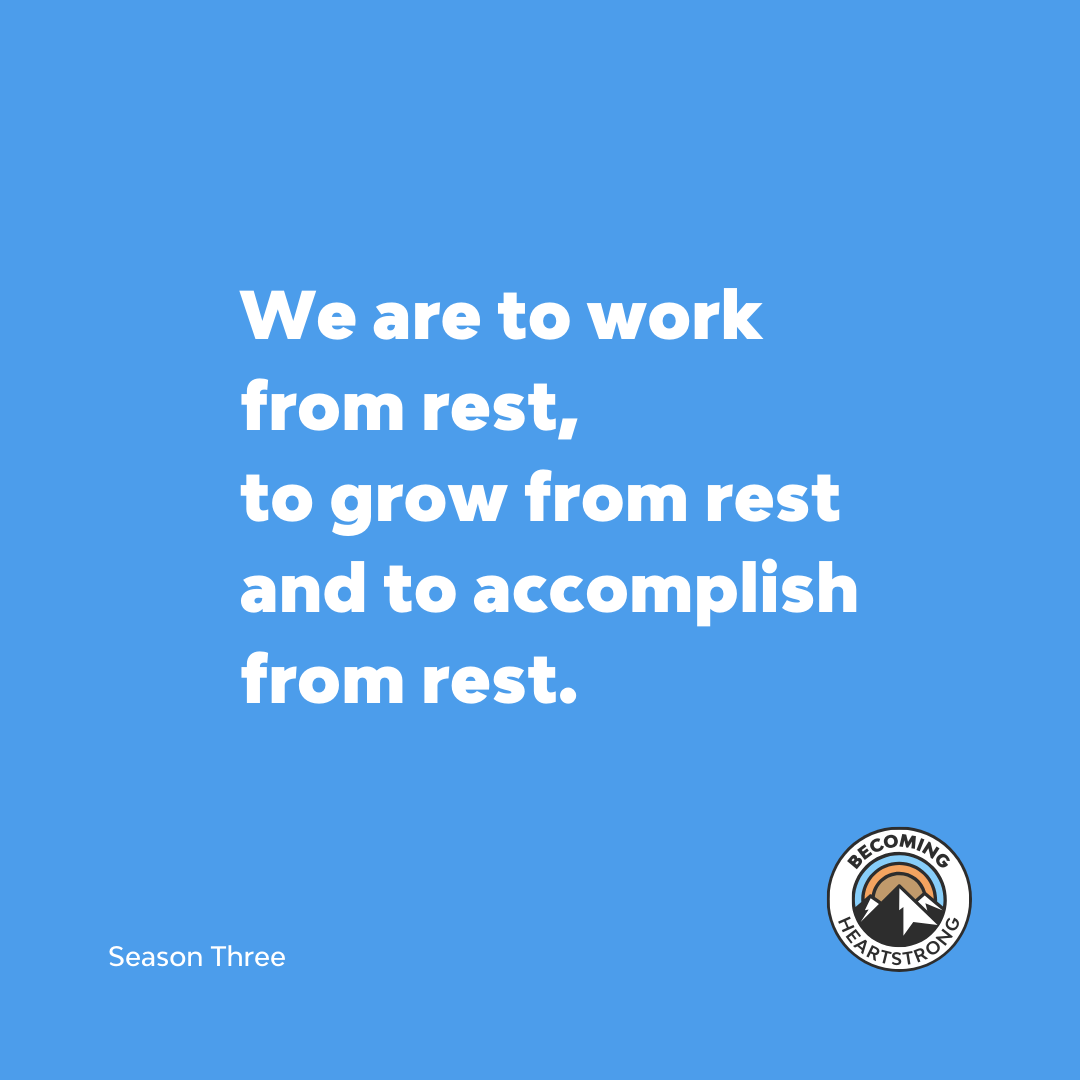“Let us therefore strive to enter that rest, so that no one may fall by the same sort of disobedience.” Hebrews 4: 11 (ESV).
In the Old Testament, the law established a calendar that included a day of rest called the Sabbath; some festivals, like Passover, had two days of rest on the first and the last day of the week, which translates into our Sunday and Saturday, something we call “the Weekend.”
When Jesus came, he fulfilled the need for these rituals and invited us into an even better covenant that includes permanent and perpetual rest. Like in the garden of Eden, His desire for us was to delight in Him and for Him to delight in relationship with us from a place of rest. He worked for six days and then rested and invited us into that rest as a permanent state of existence. We are to work from rest, to grow from rest, and to accomplish from rest. There is no earning in Christ, and there is no striving except that we are to strive for rest, which sounds a bit like an oxymoron.
I wonder if we have confused what rest really is. We think that rest is the absence of work, but I do not believe that rest is simply the absence of work. A retired person may tell you that although the responsibilities of work have ceased, the longing for meaningful work has not. A life lived without “work” is not necessarily a life living in the revelation of peace and rest. Those who were able to find true contentment in work are often the ones content not to work. Work is honourable and good, but we should not feel like a slave to our work like work is our taskmaster. This mindset or posture has nothing to do with the kind of work we do, whether we deem our work meaningful or insignificant. If we hate our work, we may feel like a slave to it, but I wonder if there is a perspective on our work, no matter what it is, that is higher than just our hatred of it.
Some people will work their whole life at a job they hate. They are discontent, and their mindset is one of scarcity; they will give the least energy possible to this job they hate. Whereas the Bible teaches us there is life found in submission, first to God and second to the various authorities in our lives, i.e., parents, spouses and supervisors or bosses. “Work willingly at whatever you do, as though you were working for the Lord rather than for people.” Colossians 3:23 (NLT).
True submission produces trust, and trust leads us to peace and rest. When we are fully submitted to God in our hearts, God knows He can entrust us with more. There is great trust when there is true submission between husband and wife. Trust that leads to peace and rest. Human to human, we do not always steward this well; however, when we are both humble and mutually submitted and committed to serving each other, something very deep and powerful can happen. When there is actual submission in kids to their parents, a beautiful trust and mutual respect relationship occurs; this again produces peace and rest; there is a promised blessing that comes out of this relationship. In a working context, there is genuine submission and respect to the authority set in place, trust is developed, and peace and rest follow.
Dear Lord, would you give us a fresh understanding and revelation of rest, not the absence of work but the absence of striving and earning approval and acceptance. Lord, teach us the power of true submission. Teach us the peace and rest that comes from complete submission to you and, secondly, to the various relationships you have given us to steward here on earth. Thank you, Jesus, for your truth; your Word is truth!


